The smartphone has transformed expat life, giving us access to information and services wherever we go. Here are a few of the most useful apps to help you survive and thrive in Beijing.
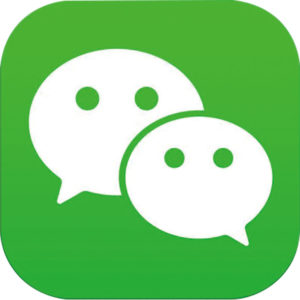
Forget Facebook, Twitter, and Whatsapp – in China, WeChat is king. Beijingers use it for networking, sharing and gossip, and even pay their bills on it. Get used to the idea of scanning QR codes instead of exchanging phone numbers. It also has WeChat Wallet (click here for a set-up guide), a portable payment system where you can top up your phone, pay utility bills, order a taxi, or book a table for dinner.
Alipay
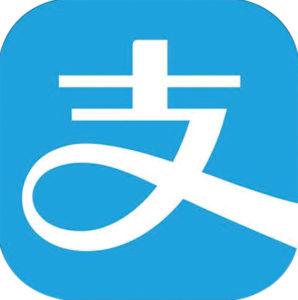
WeChat may dominate social media, but when it comes to website payments, the competition is Alipay. It’s more than just a Paypal equivalent — you’ll see more locals paying for their shopping and dining with their smartphones than with cards. Go to pg 43 for details on how to set up Alipay.
Pleco

Whether you’re serious about learning Mandarin or just want to get by, Pleco is an outstanding language app for Chinese. The basic package is free, but you can buy and download other added functions. Particularly useful is its feature to read characters with your phone’s camera. Pleco even indicates the tones for characters, with a crafty color coding system.
Baidu Translate
 Need to translate short words or long paragraphs? Baidu Translate is a must have for that. Its handy camera function can help you decode daily things in a world full of Mandarin, from operating your washing machine to replying to messages sent by your Chinese contacts.
Need to translate short words or long paragraphs? Baidu Translate is a must have for that. Its handy camera function can help you decode daily things in a world full of Mandarin, from operating your washing machine to replying to messages sent by your Chinese contacts.
Air Matters
 Brace yourself for polluted days in Beijing. If you want to know how dirty the air you breathe is, Air Matters is the harbinger of bad news. You can opt to put the current air quality index reading as an app notification.
Brace yourself for polluted days in Beijing. If you want to know how dirty the air you breathe is, Air Matters is the harbinger of bad news. You can opt to put the current air quality index reading as an app notification.
Apple Maps
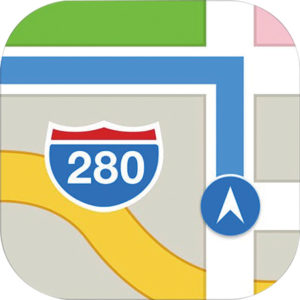 From simple searches to transport options, Apple Maps is a viable tool to help you survive daily commuting and traveling in the city. Just don’t forget to close the app after using it, or else your mobile data might be drained by the app’s real-time use of Global Positioning System (GPS) location services
From simple searches to transport options, Apple Maps is a viable tool to help you survive daily commuting and traveling in the city. Just don’t forget to close the app after using it, or else your mobile data might be drained by the app’s real-time use of Global Positioning System (GPS) location services
MetroMan Beijing
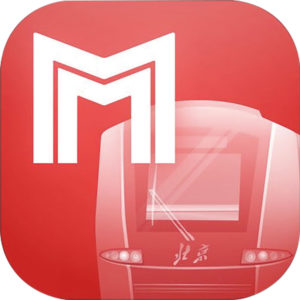 This handy subway app includes a search function and will tell you which stations are close to you, as well as a map of the whole subway system. It also gives users estimates about travel time and distance, number of transfers, and prices.
This handy subway app includes a search function and will tell you which stations are close to you, as well as a map of the whole subway system. It also gives users estimates about travel time and distance, number of transfers, and prices.
Three apps we wish were in English
Baidu Maps
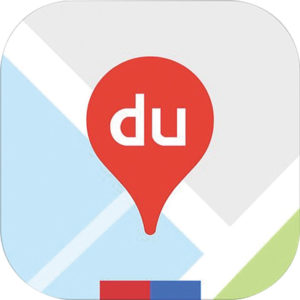 Even if Google Maps can bypass the Great Firewall, it just isn’t accurate in Beijing. GPS location is “offset,” meaning that it’s out often by hundreds of yards. Baidu Maps is an up-to-date counterpart of Apple Maps, and offers 3D searching, traffic information, street view, and more – as long as you can read Chinese.
Even if Google Maps can bypass the Great Firewall, it just isn’t accurate in Beijing. GPS location is “offset,” meaning that it’s out often by hundreds of yards. Baidu Maps is an up-to-date counterpart of Apple Maps, and offers 3D searching, traffic information, street view, and more – as long as you can read Chinese.
Taobao
 Taobao, its upmarket sister site Tmall and wholesaler Alibaba are at the heart of the Chinese obsession with e-commerce (though newcomer JD.com is taking them on in the cities at least.) But while the Taobao app is less intimidatingly busy and complex than the website, it’s still for the fluent and/or determined only.
Taobao, its upmarket sister site Tmall and wholesaler Alibaba are at the heart of the Chinese obsession with e-commerce (though newcomer JD.com is taking them on in the cities at least.) But while the Taobao app is less intimidatingly busy and complex than the website, it’s still for the fluent and/or determined only.
Didi
 Just a year ago, we had Uber cars circulating the city. But after a mega merger between Uber and Didi, the car-hailing game in Beijing has changed, making taxi hailing a much more difficult way of traveling compared to just riding a bus or taking the subway.
Just a year ago, we had Uber cars circulating the city. But after a mega merger between Uber and Didi, the car-hailing game in Beijing has changed, making taxi hailing a much more difficult way of traveling compared to just riding a bus or taking the subway.

This article originally appeared on p 32-33 of beijingkids May 2017 Home & Relocation Guide.
Download the digital copy here.












